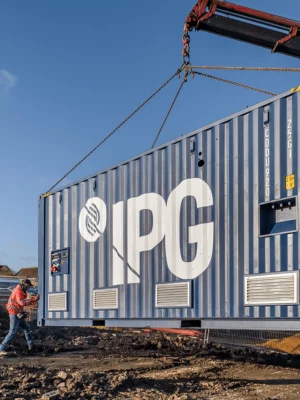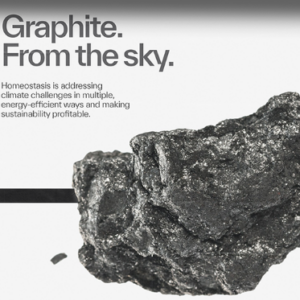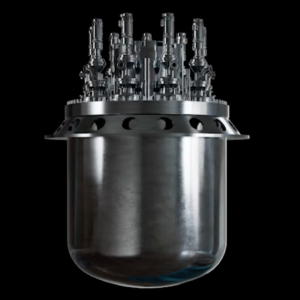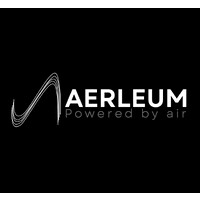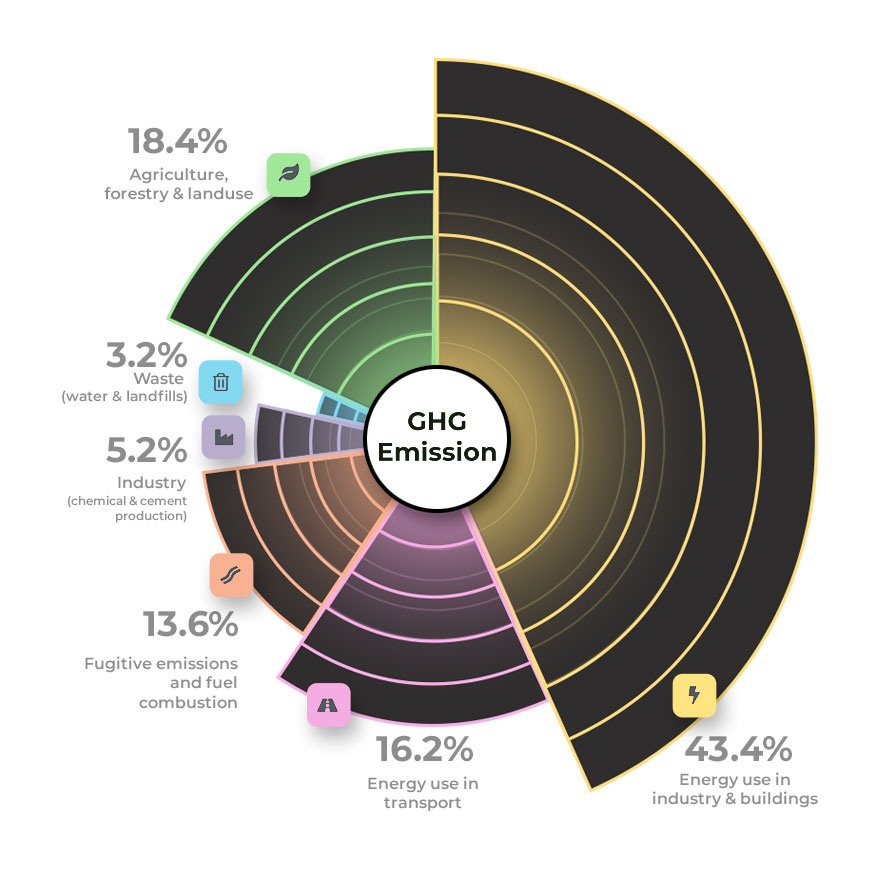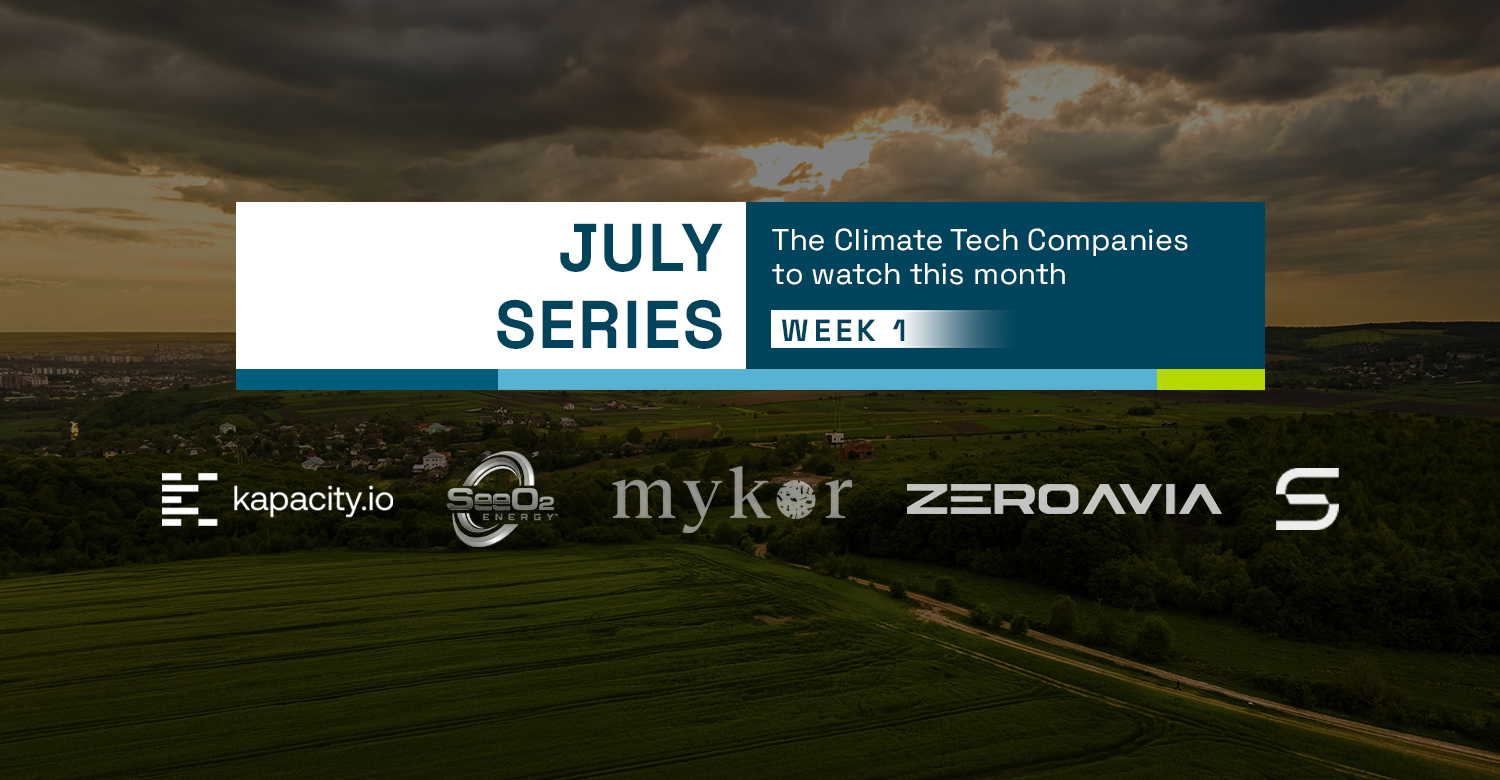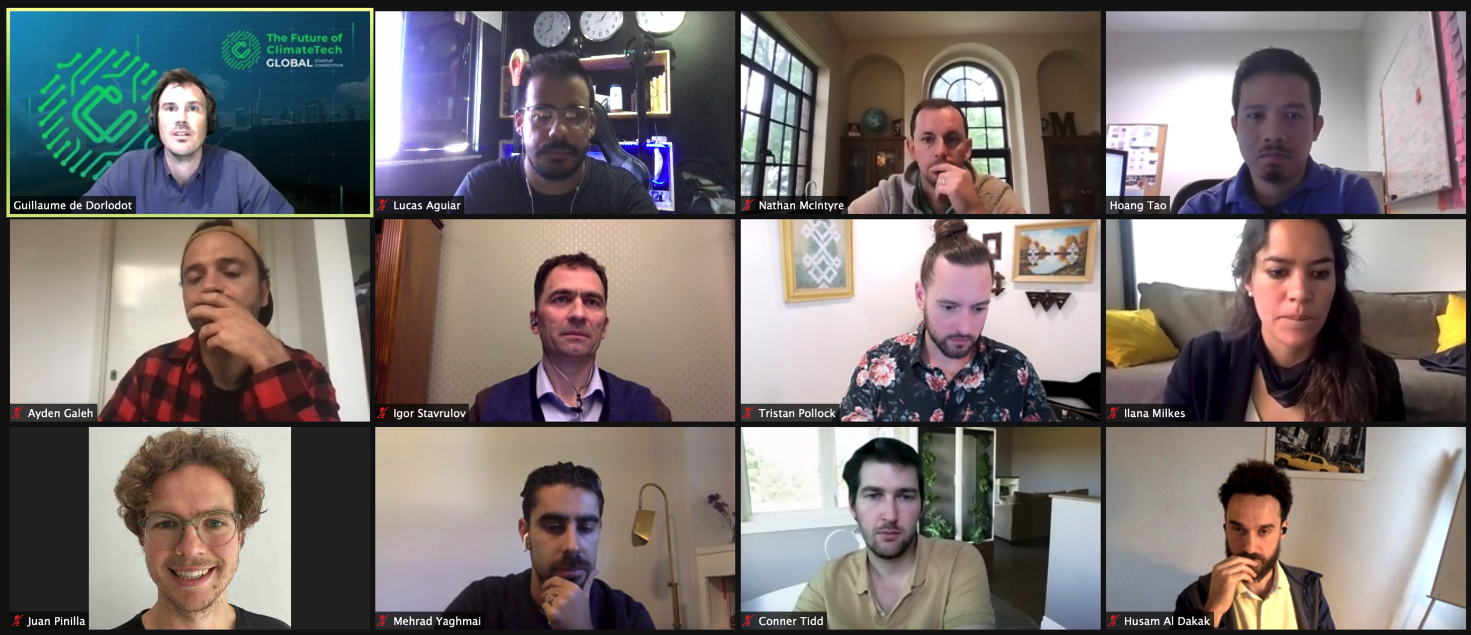February Week 3, 2024: In this weekly series, we highlight 5 climate tech startups to watch by featuring the incredible startups, companies, or projects that are leading the fight against the climate crisis.
Each month, we add these startups to our running list, which we have categorized based on fuel emission sector data from the most detailed, recent data SBC could identify from the World Resource Institute in 2016.
This initiative from Startup Basecamp aims to support founders by giving them access to networking and exposure opportunities that help them to scale and finance their climate tech solutions.
Do not hesitate to join our collective movement by requesting your membership.
With care,
Guillaume and the SBC TEAM
Cross-cutting enablers
Founded: 2016 – Indianapolis, IN, USA
Founders: Haley Marie Keith & Kevin Keith
Elevator Pitch: MITO Material Solutions is revolutionizing the materials industry with its innovative hybrid additive technology. As a next-generation company, MITO tackles industry-wide challenges by providing micro-sized solutions that enhance the performance of materials, making them stronger, more durable, flexible, and sustainable. Their patented platform technology uniquely functionalizes substances like graphene and biomaterials, creating hybrid additives that seamlessly integrate into existing manufacturing processes. MITO’s additives, such as E-GO and ACRE, are transforming the production of planes, cars, wind turbines, and even sporting goods by enabling manufacturers to produce lighter, tougher parts without altering other mechanical properties, leading to significant cost and energy savings and reducing the likelihood of mechanical failures.
Problem they solve: Manufacturers across various industries face ongoing challenges in improving material performance while maintaining or reducing costs and environmental impact. Traditional composite materials and thermoplastics often require a trade-off between strength and weight or durability and flexibility. MITO Material Solutions addresses these challenges by offering an innovative additive that enhances material properties without disrupting existing manufacturing processes. Their technology allows for the production of parts that are both lighter and more durable, solving critical manufacturing puzzles and enabling advancements in design and functionality without compromising safety or sustainability.
Impact: By enabling the production of lighter components, MITO’s technology contributes to reduced fuel consumption and lower emissions in transportation industries, such as automotive, aerospace, and marine. Furthermore, the increased durability and toughness of materials infused with MITO additives lead to longer-lasting products, reducing waste and the need for frequent replacements. The non-toxic and safe nature of their additives also ensures a safer manufacturing environment and minimizes the ecological footprint of production processes.
Stage: Seed.
Interested in MITO Material Solutions?
To learn more about their technology or get in touch, see here.
Energy use in Industry and Buildings
Founded: 2016 – London, UK
Leadership: Toby Gill
Elevator Pitch: IPG Energy is on a mission to revolutionize power generation in hard-to-abate sectors with their innovative, fuel-agnostic renewable generator. Their patented Flameless Combustion technology ensures that businesses no longer have to choose between energy security and environmental sustainability. IPG Energy’s generators can run on various fuels, offering a clean, reliable, and on-demand power source.
Problem they solve: Despite the urgent need for sustainable energy solutions, many sectors continue to depend on diesel generators for reliable and secure power, significantly impeding progress towards net-zero goals. The challenge lies in finding a versatile, environmentally friendly alternative that can match diesel’s reliability without its carbon footprint. IPG Energy addresses this critical gap with their patented renewable generator, which operates independently of fuel type, providing a versatile, eco-friendly alternative to traditional diesel generators. This innovation allows sectors previously reliant on diesel to transition to greener fuels without compromising on power availability or operational security.
Impact: By enabling the use of renewable and less carbon-intensive fuels, IPG Energy significantly reduces greenhouse gas emissions and air pollution across various industries. This shift not only aids in combating climate change but also improves air quality and reduces the ecological footprint of energy-dependent operations. IPG Energy’s approach exemplifies how technological innovation can bridge the gap between current energy practices and a sustainable, net-zero future, making clean power accessible and reliable for all sectors.
Stage: Seed.
Interested in IPG Energy?
If you are interested in learning more, see here.
GHG Capture, Use, and Storage
Founded: 2022 – Tacoma, WA, USA
Founders: Julien Lombardi & Makoto Hamamoto Eyre
Elevator Pitch: Homeostasis is at the cutting edge of climate technology, transforming the climate crisis’s very cause—carbon dioxide—into a critical part of the solution. Through their innovative, patent-pending technology, they are converting atmospheric CO2 into valuable carbon materials, such as graphite, essential for clean energy storage technologies. By leveraging aqueous mineralization capture combined with electrochemical carbonate reduction, Homeostasis’s technology can produce high-demand carbon materials anywhere globally, turning emissions from problem to profit and paving the way towards a sustainable future.
Problem they solve: Traditional methods of producing materials like graphite are energy-intensive and contribute to environmental degradation, while direct air capture of CO2 has yet to be implemented at a scale that impacts global emissions significantly. Homeostasis addresses both challenges by offering a scalable solution that captures atmospheric CO2 and converts it into graphite, reducing the carbon footprint of material production and helping close the carbon cycle in an economically viable manner.
Impact: By converting atmospheric CO2 into graphite and other critical materials, Homeostasis provides a scalable solution to mitigate climate change while supporting the growing needs of the clean energy sector. Their process not only removes harmful greenhouse gases from the atmosphere but also reduces reliance on environmentally damaging mining practices. Furthermore, the ability to transform flue-gas emissions into revenue-generating materials incentivizes businesses to reduce their carbon output, leading to a decrease in overall industrial emissions. By integrating their technology across global supply chains, Homeostasis is not just developing a product; they’re fostering an ecosystem that promotes sustainability, resource efficiency, and a lower carbon future.
Stage: Pre-seed.
Want to learn more about Homeostasis?
To learn more about their technology or get in touch see here.
Energy use in Industry and Buildings
Founded: 2013 – Stockholm, SE
Founders: Janne Wallenius & Peter Szakalos
Problem they solve: The global transition to renewable energy is often challenged by the intermittency of sources like wind and solar, creating a critical need for stable, baseload power solutions. Traditional nuclear power presents challenges in safety, cost, and scalability. Blykalla addresses these issues head-on with its innovative lead-cooled SMRs, offering a safe, efficient, and scalable alternative to both fossil fuels and conventional nuclear reactors. By providing a consistent and carbon-free power supply, Blykalla’s reactors facilitate a more reliable and complete shift to renewable energy sources, ensuring energy security and environmental sustainability.
Impact: By offering a safe, scalable, and carbon-free baseload power alternative, Blykalla enables a more effective integration of renewable energy sources into the grid, reducing the world’s reliance on fossil fuels and decreasing the environmental impact of energy production. The company’s focus on safety, sustainability, and scalability exemplifies the potential of next-generation nuclear technology to play a crucial role in achieving a fossil-free future, making Blykalla a key player in the global pursuit of sustainable energy solutions.
Stage: Seed.
Interested in Blykalla?
To learn more about this company, see here.
GHG Capture, Use, and Storage
Founded: 2023 – Strasbourg, FR
Founders: Sébastien Fiedorow & Steven Bardey
Elevator Pitch: Creating a better world for future generations by building a circular economy. They strive to remove giga-tons of carbon dioxide from the air and transform it into clean alternatives for fossil-based products.
Problem they solve: The persistent increase in global CO2 levels and reliance on fossil fuels are leading contributors to climate change, posing significant challenges to the environment and public health. Traditional methods of reducing atmospheric CO2 and replacing fossil-based products have faced scalability, cost, and efficiency barriers. Aerleum addresses these critical issues by providing a scalable and cost-effective solution to capture atmospheric CO2 and transform it into viable alternatives for fossil-based products. This approach not only helps mitigate climate change but also reduces dependence on non-renewable resources, driving the transition towards a more sustainable and circular economy.
Impact: By removing carbon dioxide directly from the air and converting it into sustainable products, Aerleum contributes to the reduction of global greenhouse gas levels. Their technology promotes a circular economy, where carbon is recycled and reused rather than emitted, leading to a decrease in overall carbon footprint. Furthermore, by providing scalable solutions tailored to the needs of large emitters, Aerleum enables industries to reduce their environmental impact and move towards cleaner, more sustainable practices. This transformative technology not only addresses current environmental challenges but also paves the way for future generations to inherit a healthier, more sustainable world.
Stage: Pre-seed.
Interested in Aerleum?
If you are interested in learning more, see here.
Do you know of other startups we should include in our Startups to Watch Series? Submit to our list!
How do these startups fit in with all the others we have looked at?
Check out our running list of the 400+ climate tech startups to watch we have featured.




